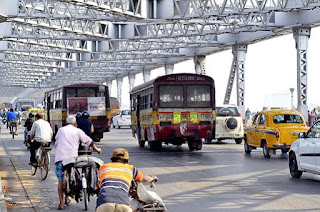Learning about french cities and their vocabulary
French cities and vocabulary
Franchise is known for its many ville
Cités . The most popular, of course, is la capital ( the capital) , Paris , with son histoire (it's history),ses musee( it's museums),Des magasins (it's shops),son architecture(it's architecture) de cafés and ses spectacles( it's events) .
All towns have their character and charm . For example , Arles is famous for ses vestiges romains ( its roman remains) and Rouen for its long histoire.
If you search en ligne ( online) for les plus beaux villages de France( the most beautiful villages of france) . You can access sites Des villages réputes For their maisons fleuries ( floweres houses) in Bretagne , Barfleur en Normandie, the ancient port romaine et viking (romain And viking.port), and many other unique cities and regions .
Vocabulary builder (around town),,
- La place de la République- public square
- Le bar-tabac du centre (bureau de tabac)- bar-tabacconist's
- L'eglice - the church
- La pharmacie-- the chemist's
- Le comlaissriat de police-police station
- La mairie / l'hôtel de Ville- the town hall
- La bibliothèque muncipale- public library
- La boucherie- butcher's
- l'Office de tourisme-the touristique office
- La maison de la presse- the newsagent's+bookshop
- Le café de la poste- the post cafe
- L'hotL'- restaurant st Jacques- hôtel-restaurant st Jacques
- L'alimentation (l'épicerie)- general food store
- La poste- the post office
- La boulangerie-patisserie -- the baker'scake shop)
- La banque- the bank
- La charcuterie-- the delicatessen
- Le camping muncipal-the muncipal campsite
French expression for place around town:-
Où? = Where?
Quand-= when
Comment- how
Demain - tomorrow
Après- demain
La semaine prochaine- next week
Bientôt- soon
En voiture- by car
Par le train- by train
À vélo- by bike
À côté de- next to
En face- opposite
Entre- in between
Au coin de - at corner of
De l'outre côté- on the other side
Devant- in front of
La marée basse- low tide
Soit....ou bien-- either.. or
Beaucoup trop de monde- far too many people
Aujourd'hui- today
La marée Haut- high tide
Plus(more) and moins(less)
In order to make a comparison you need at least two comparable things . In conversation 1, c'est plus pratique effectively means that the station hotel is more convenient in terms of lactation than the other three hotels . C'est plus pratique is therefore a short cut for the following:
L'hôtel de la gare est plus pratique que l'hôtel de la gare que de descendre à l'hôtel du centre .
Also conversation 1, c'est moins cher is a short cut for : l'hôtel de la gare est moins cher que l'hotel du centre ( less expensive than.../ Cheaper than)
C'est le moins cher means it's the least expensive / it's the cheapest .
The prononciation of french articles ( le , la,les)
Vous pouvez le prendre dans votre chambre....(you can take it in your room)..)
Here is the word le refers to learn petit déjeuner (breakfast) . Le here is a pronoun , a word that stands in for a noun , although not necessarily in the same position. At a later stage you will learn how to use a whole range of pronouns but for the moment it is important to understand the difference between the articles le,la and Les which mean the and come in front of nouns, and the pronouns le , la ,les which place nouns altogether.
Vous prendrez le petit déjeuner?---- oui nous le prendrons.
Vous gardez la clef?---- ou je la gardez.
Tu gardez la clef ? Oui je les gardez



Comments
Post a Comment